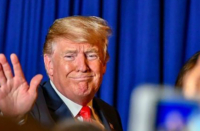Our understanding of foreign direct investment (FDI) is heavily influenced by Lenin’s analysis of imperialism, where FDI is seen as the export of capital from the advanced capitalist core, led by monopolists, to peripheral countries. The motive behind this is clear: to secure higher rates of surplus value no longer attainable within the core. This capital export seeks cheaper labour, untapped markets, or natural resources unavailable elsewhere. Lenin’s view highlights the parasitic nature of this dynamic, where imperialists extract wealth from the periphery, which flows back to the capitalist class of the core, sometimes trickling down to “their” labour aristocracy. For the periphery, the outcome is subordination and dependence. Foreign monopolists out-compete local firms, weakening domestic industries, while what Conor McCabe emphasises as a domestic comprador class facilitates this process because foreign capitalists rely on local knowledge, resources, and political favours. Ultimately, the dominance of foreign monopolists undermines national sovereignty, making the national economy dependent on external capital.
However, Lenin also acknowledged the potential benefits of offering “concessions” to foreign capitalists, as seen in the New Economic Policy. Under the control of the domestic state, foreign capital can enhance local productive forces through technology transfer, infrastructure development, job creation, and the introduction of new managerial and labour skills, as well as generating state revenues. Examples of interest to us include Lada’s collaboration with Fiat, the Shanghai Automotive Industry Corporation’s venture with Volkswagen, and PetroVietnam’s strategic alliance with ExxonMobil. These partnerships demonstrate how countries can leverage FDI while retaining control over their terms to ensure it supports strategic development goals. Much depends on the nature of the state: who rules and in whose interest?
Ireland’s relationship with foreign investment is well known. Historically, the country’s failure to develop an industrial base was shaped by various factors: a small domestic market, the loss of the industrialised North, and a lack of political will, due to domestic class interests (such as maintaining Sterling parity). These conditions prompted a pivot in the 1960s, with Ireland adopting tax incentives and championing favourable institutional factors like cheap labour and malleable government. This shift kick-started capital accumulation as FDI became embedded in the economy. Between 1960 and 1983, FDI accounted for 70% of all new employment, while also benefiting domestic sectors such as land, construction, and the “holy trinity” of accountancy, banking, and law. A dualistic industrial structure emerged: a foreign monopoly capital sector with its domestic dependents, alongside smaller-scale domestic capital, with notable exceptions in agri-food and construction, that were less subject to international competition.
The later complementary creation of the International Financial Services Centre (IFSC) added a new dimension, supporting transfer pricing and enabling regulatory loopholes for hot money. The most significant impact was seen in the 1990s and 2000s, with a manufacturing boom driven by foreign-owned medical devices, pharmaceuticals, and information technology sectors. Comprador sectors boomed too, in assisting foreign capital take advantage of intellectual property and Research & Development tax treatments. When over-accumulation caused the manufacturing boom to subside in the early 2000s, domestic dynamics in banking, construction, and property took over: the natural habitat of the Irish bourgeoisie. The collapse in property values that followed led to the establishment of the state-bank-property complex – National Asset Management Agency (NAMA) – which facilitated new, highly parasitic forms of FDI in residential property.
FDI appears to directly employ 10% of the national workforce, with the majority created by U.S. capital. Indirect employment from FDI may reach 20-30% of the labour force. The state makes an obvious short-term gain in tax receipts from activity in the sector. This economic reach extends into the political sphere, where actors like the American Chamber of Commerce and key beneficiaries of FDI (e.g. Arthur Cox, Deloitte, and the Industrial Development Authority [IDA]) maintain revolving-door relationships with the Departments of Revenue and Finance, influencing the drafting of tax codes and corporate ownership arrangements.
Yet there are threats. The European Union has long been unhappy with Ireland’s tax practices, the Organisation for Economic Co-operation and Development (OECD) seeks to curb base erosion and profit shifting (BEPS), and the U.S. government is pushing to repatriate profits its corporations earn abroad. Perhaps this is why the Irish ruling class are modestly pivoting to China[i].
While some brass-plate operations may relocate if better BEPS opportunities arise elsewhere, those with fixed capital investments are relatively inelastic, at least in the short term. These tech, pharma and medical device industries often have large workforces, including relatively well-paid assembly line workers, engineers, and software developers. They represent a working class with distinctive ideological dimensions.
A left strategy for engaging with FDI must not overlook its potential to develop productive forces in certain sectors in the absence of immediate alternatives. It would recognise such benefits only materialise when spillover effects are orchestrated by an active, developmental state. Spillovers must be harnessed to build domestic productive capacity, which could be most effectively achieved, if not exclusively, through state-led coordination and ownership. Moreover, a diversified strategy that avoids over-reliance on any single source or type of FDI is crucial. And of course, the nature of the state matters: what class rules? For whom? A state beholden to Matheson LLP is different from one under the heel of communists. The latter would not allow zinc reserves or gas fields to be controlled by foreign interests but would instead re-orient economic policy around the balanced development of the productive forces in the interests of working people.
[i] BBC News (2024) Does Chinese investment benefit or damage Ireland? 30 September






